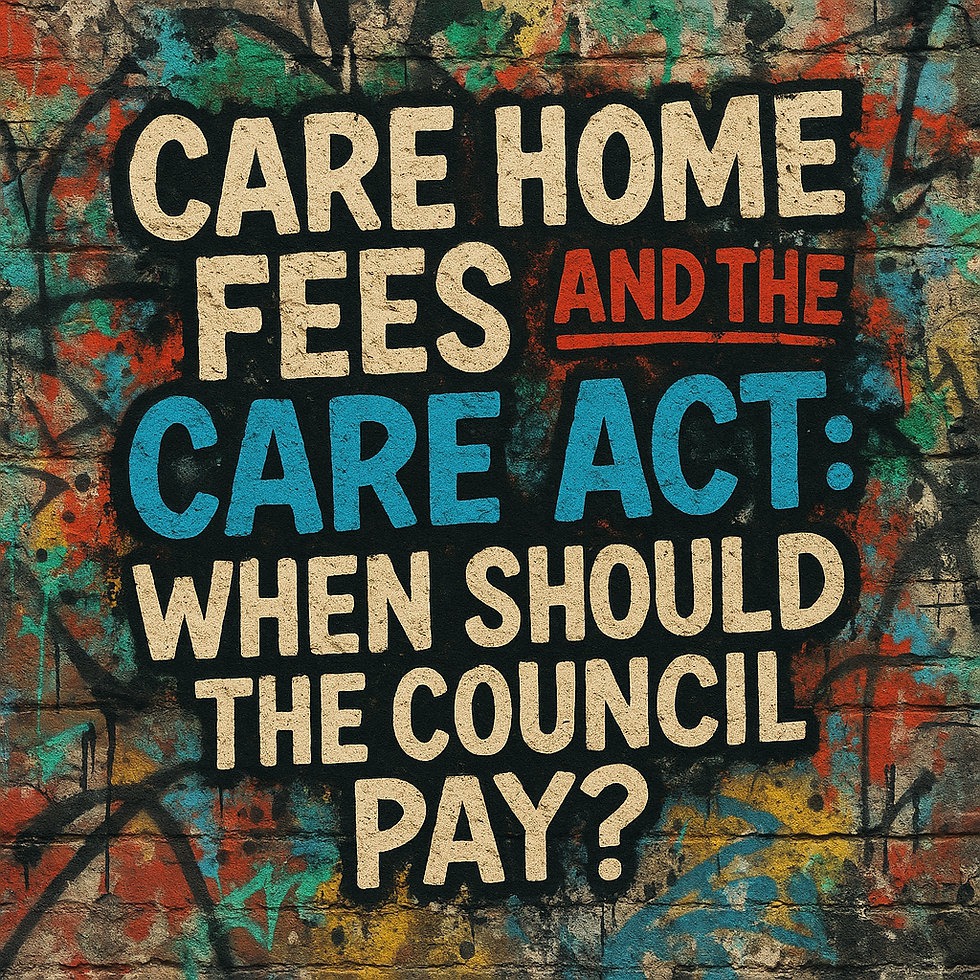Financial Vulnerability - Balancing the Protection of Rights and The Protection from Harm
- Team Nellie

- Jun 16, 2020
- 3 min read
Updated: Apr 21, 2023

As a Social Worker, we must protect. But its this "duty" is ambiguous, do we protect the person from harm even if that means oppressing their rights? Do we protect their rights bu ignore the risk of harm? Its a delicate balance and Social Work as a career is "dammed if it does, dammed if it doesn't."
I have heard many qualified and unqualified social care staff oppress peoples decision-making rights because their personal values result in them wanting to protect the client from harm.
As a local authority Social Worker, my go-to quote to remind me of this balance between protecting rights and protecting from harm was Lord Justice Munby "What good is it making someone safer if it merely makes them miserable?" It always aided in my reflection upon a case.
As an independent Social Worker, I come across more and more clients who are financially vulnerable. In many cases, these clients as they lack sufficient mental capacity to independently manager their property and financial affairs. This lack of capacity can then result in a family member or legal representative applying to the Court of Protection for a deputyship order. This is a simple balance; the clients is unable to make decisions; therefore, it is imperative someone protects them from financial abuses.
However, we also come across those that do have the capacity. On Occasion, we have even been asked to assess people who are deemed to have capacity at Stage 1 of the Mental Capacity Act (2005). They have sufficient capacity, and as per Principle 3 of the MCA (2005), we are all allowed to make unwise decisions. So who am I to stop a 72-year-old Father of 3 giving his entire estate to the 25-year-old lady he met just last week at the Co-Op?
But it doesn't sit right. I have no evidence, but I know this situation isn't right.
To aide in these financial vulnerability cases, all of our staff at Nellie Supports have been accredited to complete Lichtenberg Financial Vulnerability Assessments.
This set of interviews and assessments are transaction-specific, allowing us to risk assess and evidence a person's financial vulnerability. Additionally, and most importantly, the therapeutic nature of the assessments means the person can come to an understanding of their vulnerability and put plans in place to ensure they retain their decision.
This person-centred approach to financial vulnerability means we can empower the individual to protect themselves from risk better while also ensuring we don't oppress their decision-making rights.
The assessments consist of a short Financial Decision Tracker (FDT) interview, which identifies whether someone could potentially be financially vulnerable in a given situation; this is a short interview. The Tracker asks the client about choice, rationale, understanding, and appreciation of a financial decision in the context of their values. These decisional abilities determine the fidelity, integrity and autonomy of the decision.
Should the FDT identify an individual could be financially vulnerable, we are then able to complete to further assessments to assess and evidence their vulnerability regarding a specific transaction.
The Family and Friends interview is a structured, multiple-choice interview of the older adult's relative, friend or trusted professional that encourages elaboration.
Finally, a Financial Vulnerability Assessment is an in-depth interview to determine the factors involved in an older adult's financial decisions. It looks at the individual's financial situational awareness, psychological perspective and their vulnerability.
The results from all three assessments can then be openly discussed with the client allowing them to understand their situation better and protect themselves where necessary.
All of this means as a Social Worker, I now have the tools to empower clients to make their own, and most importantly informed decisions, ultimately protecting them from harm while protecting their decision-making rights.




Comments